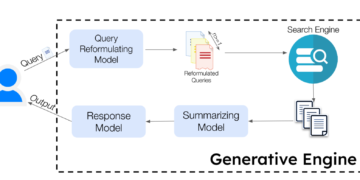Even though SEO existed before COVID-19 impacted everyone’s lives, many businesses, particularly brick-and-mortar stores, are unfamiliar with this word.
Some only encountered the term SEO when they decided to move their operation online so their businesses could thrive and survive the ongoing pandemic.
Given that COVID-19 upends businesses, especially during the circuit breaker when most consumers had to stay home and work remotely, going digital is the only way companies can reach out to customers and earn profits.
Whether you own a brick-and-mortar store and went digital or recently established your online business, it is only natural to have questions about SEO.
10 Frequently Asked Questions About SEO, Answered
1. What is SEO?
The acronym ‘SEO’ stands for search engine optimization, which is part of digital marketing. Its goal is to help improve the ranking and visibility of a website so it will appear more frequently when someone searches for something related to the content a website contains.
2. How Does SEO Work?
The process of SEO starts with keyword research. It is a method that helps SEO vendors and non-SEO vendors determine the most searched keywords, which are the words, phrases, or sentences that people are searching for online, particularly on search engines such as Google, Yahoo, or Bing.
Once they have determined the keywords, they will divide them into categories and use each category to create content. By inserting keywords into content strategically, it will help increase its relevance and show to people searching for the same or similar topic.
3. What Are Organic Traffic and Its Relationship to SEO?
Organic traffic refers to people visiting a website by clicking on web pages listed on search engine results pages (SERPs). The relationship of organic traffic with SEO is that SEO helps increase the organic traffic that a website can get.
The higher ranking a website has brings more organic traffic.
4. Why is SEO important for your business?
SEO is important for your business because it can help you promote your products or services in the most natural way possible by answering the questions or concerns of potential customers online.
People nowadays use search engines whenever they want to learn or find something, so doing SEO is an excellent way for your business to get discovered, as well as to introduce your business to your target audience and inform them about what you offer.
5. Is SEO free?
Unlike pay-per-click (PPC) ads, you do not have to pay anything when someone clicks on your web pages on organic SERPs. However, in order to rank on the first page of SERPs, you will require a team of writers, designers, and motion graphic artists to create high-quality content, purchase backlinks, use premium SEO tools, and ensure website maintenance with the aid of website designers and developers.
Together, these elements boost SEO effectiveness.
As such, it is more cost-effective to hire an SEO agency in Singapore rather than hiring in-house as the agency has access to professionals who specialize in various areas of SEO.
6. How Much Does SEO Cost in Singapore, and Is It Expensive?
While it is true that there is no cost to appear on organic SERPs, it will become a different story if you hire or engage with an SEO consultant or SEO company in Singapore.
Remember that you can rely on them to help you improve your SEO strategies so you can draw more traffic, generate leads, and earn conversions.
All their SEO services, however, come with a price since they will be using their expensive SEO knowledge, experience, SEO expertise, and premium SEO tools so you can stand against your competitors.
7. How Long Does It Take To See Results for SEO?
It depends on the SEO strategies you or the vendors have used and the algorithm used by the search engines. Changes to the search engines’ algorithms can affect the SEO strategies, which is why it takes time to see results for SEO. But on average, you can expect to see SEO results within three months or more.
8. What Are the Types of Seo Services?
Keyword research, on-page SEO, off-page SEO, technical SEO, local SEO, international SEO, e-commerce SEO, video SEO, and SEO copywriting are the nine SEO services that every SEO agency in Singapore offers to their clients.
However, an SEO agency will only perform suitable SEO services based on your SEO needs and budget. If your goal is to improve your local presence, the agency will mostly focus on local SEO to help draw local customers and increase their awareness of your business.
9. What Is the Difference Between SEO and SEM/PPC?
Like SEO, SEM also helps increase the visibility of a website so more potential customers will come across it on SERPs. The difference is that SEM campaigns appear at the top or bottom of SERPs with the word ‘Ad’ beside the URLs.
For instance, in this image, the user is seeking pizza in Singapore, leading the search engines to believe that they are looking for a pizza business.
Another difference that SEO has with SEM is that you have to pay for it whenever someone clicks on your SEM campaign, and that is where its alternative name, pay-per-click (PPC) advertising, comes from.
10. How Do You Choose the Right SEO Company?
Although Singapore has a large number of SEO companies, choosing the right one can be challenging. You have to consider several factors, such as years of experience, reputation, and level of expertise, so you can weigh your options and make an informed decision.
When you start your search for the right SEO company, you should start by checking out their website. There you will come across their portfolio, case studies, and customer reviews that can help you determine whether or not they can help meet your SEO needs and budget.
Final Word
As SEO continuously changes, the more you need to improve your SEO knowledge. Being updated with the latest trends and everything related to SEO can help you implement SEO strategies more effectively as your business grows and expands.
To learn more about SEO, engage with an SEO agency in Singapore. Contact OOm at 6391-0930 or leave a message on their website!
Read the full article here














